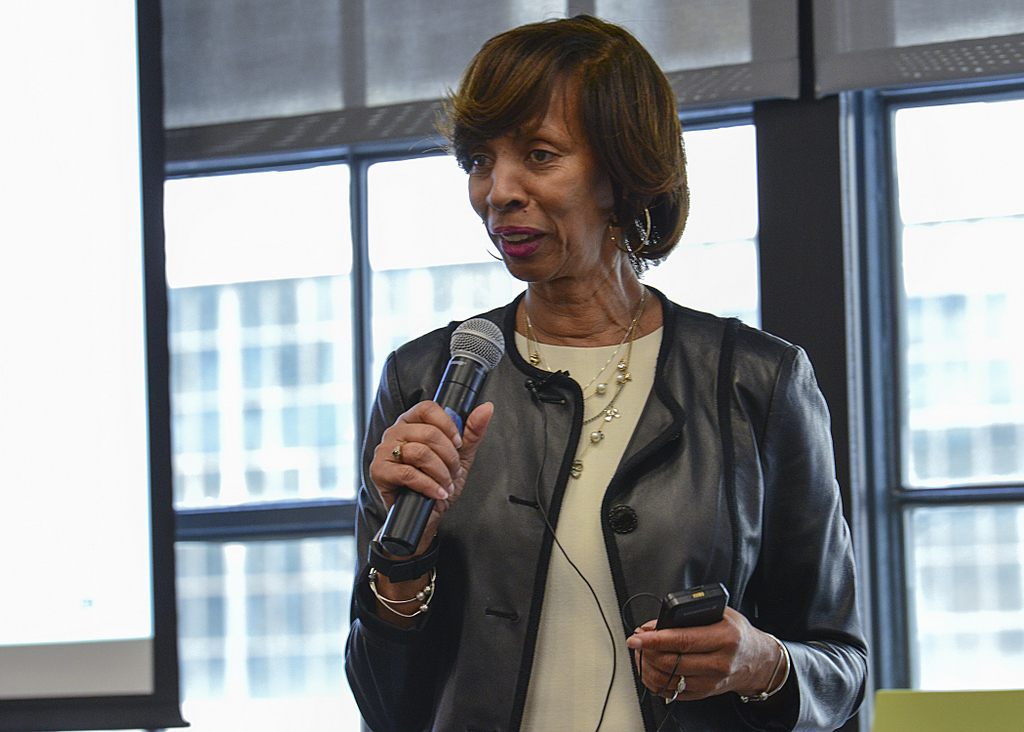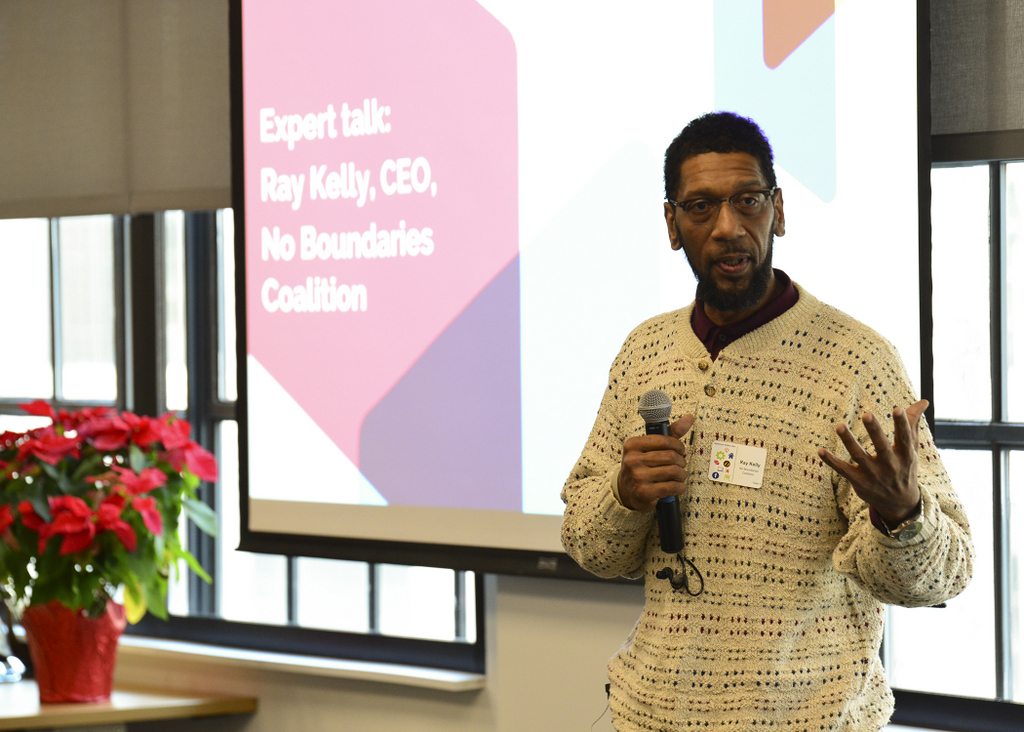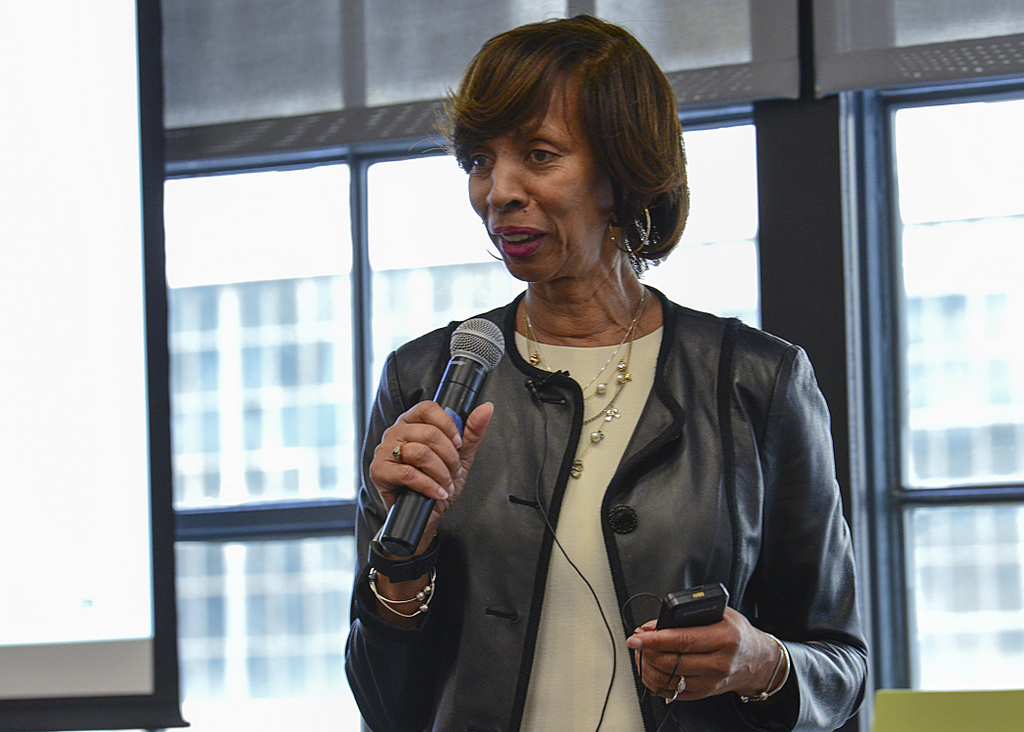[ad_1]
By Freddie Allen @freddieallenjr
Facebook, one of the biggest technology companies on the planet, has joined community activists and Baltimore’s civic leaders in an effort to decrease violence in Charm City.
In 2017, even though violent crime (murder and nonnegligent manslaughter, rape, robbery, and aggravated assault) decreased nationwide, violent crime increased in Baltimore, according to the FBI’s Uniform Crime Reporting. City officials reported 11,010 violent crimes in 2016 and 12,439 violent crimes in 2017. In Washington, D.C., once known as the “murder capital of the country,” violent crimes decreased from 7,711 in 2016 to 6,584 in 2017.
- Baltimore, which is more than 60 percent Black, is the first city in the U.S. to work with Facebook to address violent crime.
- More than 70 percent of Black adults use Facebook and 43 percent use Instagram, according to the Pew Research Center.
- Facebook officials said that partnership with Baltimore is a long-term project.

Executives from the global social network recently hosted a “design jam,” a guided brainstorming session, to begin the development of new strategies aimed at addressing some of the underlying issues that contribute to violence in Baltimore. Although Facebook has taken on similar initiatives abroad, Baltimore was the first city in the United States to enter this unique partnership with the tech giant.
Gail Kent, Facebook’s global public policy lead on security, said that there are a lot of technology-based solutions that can help bring communities together and improve public safety.
“As an organization with 2.2 billion users, we have a responsibility for safer communities,” Kent said. “There is no technology solution to violence…there will not be an ‘app’ that we develop to solve Baltimore’s problems, but we can bring a different way of thinking to the table to bring communities together and help reduce violence.”
Speaking briefly during the design jam, Baltimore’s Mayor Catherine Pugh said that community engagement and mediation are critical to reducing violence in the city. She also acknowledged the role that technology can play in improving the lives of Baltimore’s residents.
Pugh said that the city hired a data scientist, “to measure what we were doing every single day” and the Mayor’s Office of Sustainable Solutions has used that information to improve access to city resources and to boost agency productivity.
Pugh applauded community activists and other civic leaders for working with Facebook on complex problems facing Baltimore.
“It is these kinds of conversations and collaborations that make a difference in the future of our city,” said Pugh.
Facebook has a vested interest in solving complex socioeconomic issues that plague majority-Black cities like Baltimore, due to the high use of the social media platform among African Americans.

According to the Pew Research Center, 70 percent of Black adults use Facebook and 43 percent use Instagram, which is owned by the tech giant; Blacks outpace Whites, when it comes to the use of both social platforms. Nielsen reported that 55 percent of Black millennials spend “at least one hour a day on social networking sites, which is 6 percent higher than all millennials, while 29 percent say they spend at least three hours a day, 9 percent higher than all millennials.”
Shantay Guy, the executive director of the Baltimore Community Mediation Center, said that she was grateful for Mayor Pugh’s level of thoughtfulness with engaging Facebook to use its extensive resources for the benefit of Baltimore’s residents.
“That was really powerful for me,” Guy said.
Guy, who worked as a technology project manager at T. Rowe Price, said that she was “really stoked” to be a part of the design jam, because she understands how impactful technology can be for addressing everyday issues and long-standing social problems.
“Community engagement, technology engagement and civic sector engagement will be converging in a way that allows the community to be a part of the process instead of being left out, which happens far too often in Black and [Hispanic] communities,” Guy said.
Ray Kelly, the chief executive of the No Boundaries Coalition, a resident-led, advocacy group, said that social media has changed the way that community activists reach their constituents. Now effective communication strategies must not only include traditional marketing techniques like direct marketing and public panels, but also digital and social media marketing.
“No one impacted by police misconduct is going to the [Baltimore Police Department’s] website to see what policies are under review,” Kelly said. “Community groups have to let them know and we have to get that information out there, as effectively as possible.”
Kent called the project “a long-term engagement, not just in Baltimore, but in other cities in the U.S. and across the world.”
Kelly said that the most important thing that the Black community should know about Baltimore’s partnership with Facebook is that it’s important to get involved and stay engaged with city officials and corporations in order to have a positive change in their own neighborhoods.
“The fight is still going on,” Kelly said. “We’re in the midst of change.”
Supporting that change by reducing violence in Black and poor communities is not only Facebook’s responsibility; every company in the world and every citizen in the world has a role to play in elevating the most vulnerable members of our society, said Guy.
Guy continued: “We all have a shared and individual responsibility for leveling the playing field and creating a world that is equitable.”
Freddie Allen is an independent journalist and photographer and is the former Editor-in-Chief of the NNPA Newswire and BlackPressUSA.com. Follow Freddie on Twitter @freddieallenjr.
[ad_2]
Source link

